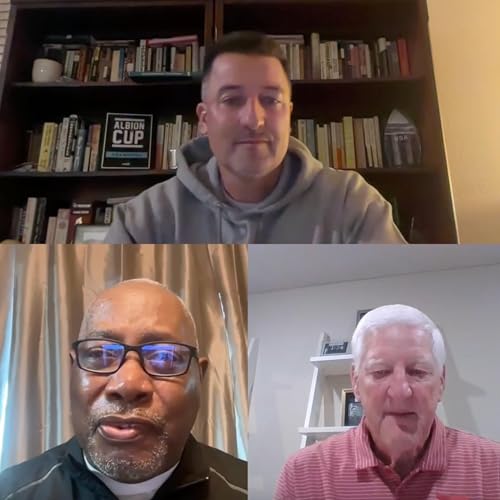Having passed the 20-year mark in his coaching career, Kalamazoo Central High School track coach Tyler Germain shares his perspective on his evolution as a coach & teacher and the values and principles he seeks to instill in both his athletes and students in an ever-changing information environment.
In addition to highlighting teamwork, commitment, and overcoming adversity as core values, Coach Germain also focuses on the importance of equity and access in creating a program that serves as a “thriving community,” providing value for athletes at every competitive level within the sport.
Coach Germain expands on how track represents a true meritocracy in sports, where there is no subjective debate or judgment on quality: the fastest, highest, or furthest wins. But, within that, one person’s success does not exclude or preclude another’s—everyone has the ability to compete against their own benchmarks and standards and find their own markers for progress and success.
The discussion of meritocracy leads into examining the myth vs. reality of the American Dream and how attacks on expertise, science, ethics, and talent by the current GOP administration run counter to those meritocratic ideals. Digging further into the development of actual expertise, Coach Germain talks about the impact of AI in the classroom and negative impacts on critical thinking and the ability to wrestle with hard questions and come up with a unique answer.
CHAPTER LIST
00:00 Introduction to Coaching Philosophy
02:05 The Role of Mentorship in Coaching
04:51 Creating an Inclusive Team Environment
06:42 Political Perspectives on Leadership
10:34 Balancing Competition and Personal Growth
12:38 The Nature of Track and Field as a Meritocracy
16:56 Defining Success Beyond Winning
20:45 Expectations of Greatness in Athletes
24:42 The Myth of the American Dream
30:05 The Political Responsibility of Coaches
36:42 Challenges of Pay-to-Play in Youth Sports
40:10 Access to Sports: The Financial Barrier
42:52 Reviving Community Sports Programs
45:50 The Role of AI in Education and Coaching
52:03 Critical Thinking in the Age of AI
58:07 Navigating Media Consumption and Authority
63:54 Redefining Patriotism and Community Values
 Sep 4 202526 mins
Sep 4 202526 mins Aug 28 202547 mins
Aug 28 202547 mins Aug 19 202552 mins
Aug 19 202552 mins 1 hr and 13 mins
1 hr and 13 mins 46 mins
46 mins 35 mins
35 mins 21 mins
21 mins Jun 13 202543 mins
Jun 13 202543 mins
